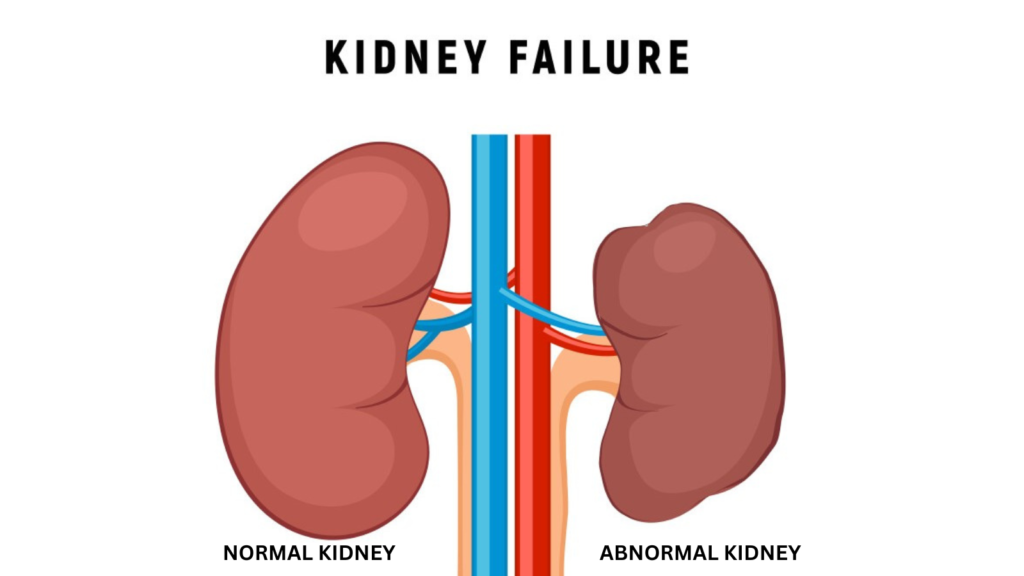Kidney failure is a significant health challenge in Ghana, affecting many lives and straining financial resources. As one of the most expensive chronic diseases to manage, it is crucial to understand its costs and learn how to prevent it. This article breaks down the cost of kidney failure and provides actionable tips for prevention to help you safeguard your health and finances.
The High Cost of Kidney Failure
First of all, what Is Kidney Failure?
Kidney failure occurs when the kidneys can no longer effectively filter waste from the blood.

At this critical stage, patients typically face three options:
- Kidney Transplant: A potential but largely inaccessible solution in Ghana.
- Dialysis: The most common treatment, requiring ongoing sessions to stay alive.
- Awaiting Death: Without treatment, kidney failure is ultimately fatal.
The Financial Burden of Dialysis

In Ghana, where kidney transplants are rare, dialysis is often the only option for survival.
A 2022 survey across dialysis centers in Ghana revealed that the average cost of a single dialysis session is approximately $54, which is about GHS712.8 at the current exchange rate. With the need for three sessions per week, the annual cost of dialysis amounts to $8,424 (GHS111,196.8). This financial burden makes dialysis unaffordable for many.
And Did You Know? Dialysis is not covered by the National Health Insurance Scheme (NHIS), further adding to the financial strain for patients and their families.
This cost above does not even include the numerous medications patients with kidney failure are put on!
The Urgent Need for Prevention
The current situation is screaming for sustainable solutions.
Government Support vs. Personal Prevention
While government intervention could alleviate some financial pressure by funding dialysis treatments, the most effective strategy for managing kidney failure is prevention. Kidney disease often results from lifestyle factors, and making simple changes can significantly reduce your risk.
Key Prevention Tips
- Regular Exercise: Aim for at least 150 minutes of moderate-intensity exercise per week. Regular physical activity helps manage weight and reduces the risk of conditions like diabetes and hypertension, which are major causes of kidney disease.
- Limit Salt Intake: Reduce your salt consumption to less than 1.5 grams per day, equivalent to less than 5 grams of NaCl. Excessive salt can contribute to high blood pressure and kidney damage.
- Reduce Refined Carbohydrates: Cut down on refined carbohydrates like white bread and sugary snacks. These can lead to obesity and diabetes, increasing the risk of kidney failure.
- Quit Smoking: Smoking harms blood vessels and reduces kidney function. Quitting smoking is one of the best steps you can take to protect your kidneys.
- Stop Drinking Alcohol: Excessive alcohol consumption can lead to liver disease and worsen kidney health. Limiting alcohol intake is crucial for overall health. Quitting alcohol completely is the best.
- Stay Hydrated: Drinking plenty of water helps maintain kidney function and supports overall bodily processes.
- Know your Blood Pressure: Hypertension is one of the common causes of kidney failure. Early detection and control of high blood pressure can prevent kidney failure.
Learn More About Kidney Health
For additional resources on kidney health and prevention, visit reputable sites such as the National Kidney Foundation or the World Health Organization. You can also check out general tips for living a healthy life here
Conclusion
Kidney failure is challenging and the cost of kidney failure is high, but proactive prevention can make a significant difference. By adopting healthy lifestyle habits, you can lower your risk of kidney disease and avoid the financial strain of chronic treatment.
Share this information to help others learn about the importance of kidney health and prevention. Together, we can work towards a healthier future for all.
Share This Article: If you find this information helpful, please share it with your friends and family on social media. Together, we can raise awareness about kidney health and prevention strategies.
